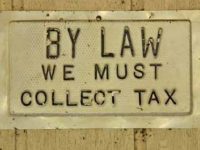Canada’s year-long copyright review has thus far featured dozens of witnesses from creators such as singer Bryan Adams to telecom giants Bell and Telus. While the review is designed to help Canadian policy makers craft a roadmap for future reforms, the release of the U.S.-Mexico-Canada Agreement (USMCA), the successor to NAFTA, represents a significant detour as it contains a detailed intellectual property rights chapter that effectively cedes many key issues to U.S. trade negotiators.
My Globe and Mail op-ed notes that in the weeks leading up to the conclusion of the trade pact negotiations, most of the attention was focused on supply management and the dairy sector, the threat of tariffs on the automotive industry, and the future of dispute resolution provisions. Yet once the secret text was released just after midnight on Sunday, the mandated reform to Canadian copyright law became more readily apparent.
![By Office of the President of the United States (@realDonaldTrump on Twitter) [Public domain], via Wikimedia Commons https://commons.wikimedia.org/wiki/File%3ADonald_Trump_Justin_Trudeau_2017-02-13_03.jpg](https://www.michaelgeist.ca/wp-content/uploads/2017/10/Donald_Trump_Justin_Trudeau_2017-02-13_03-200x150.jpg)










